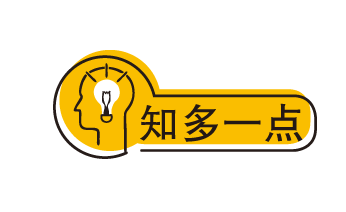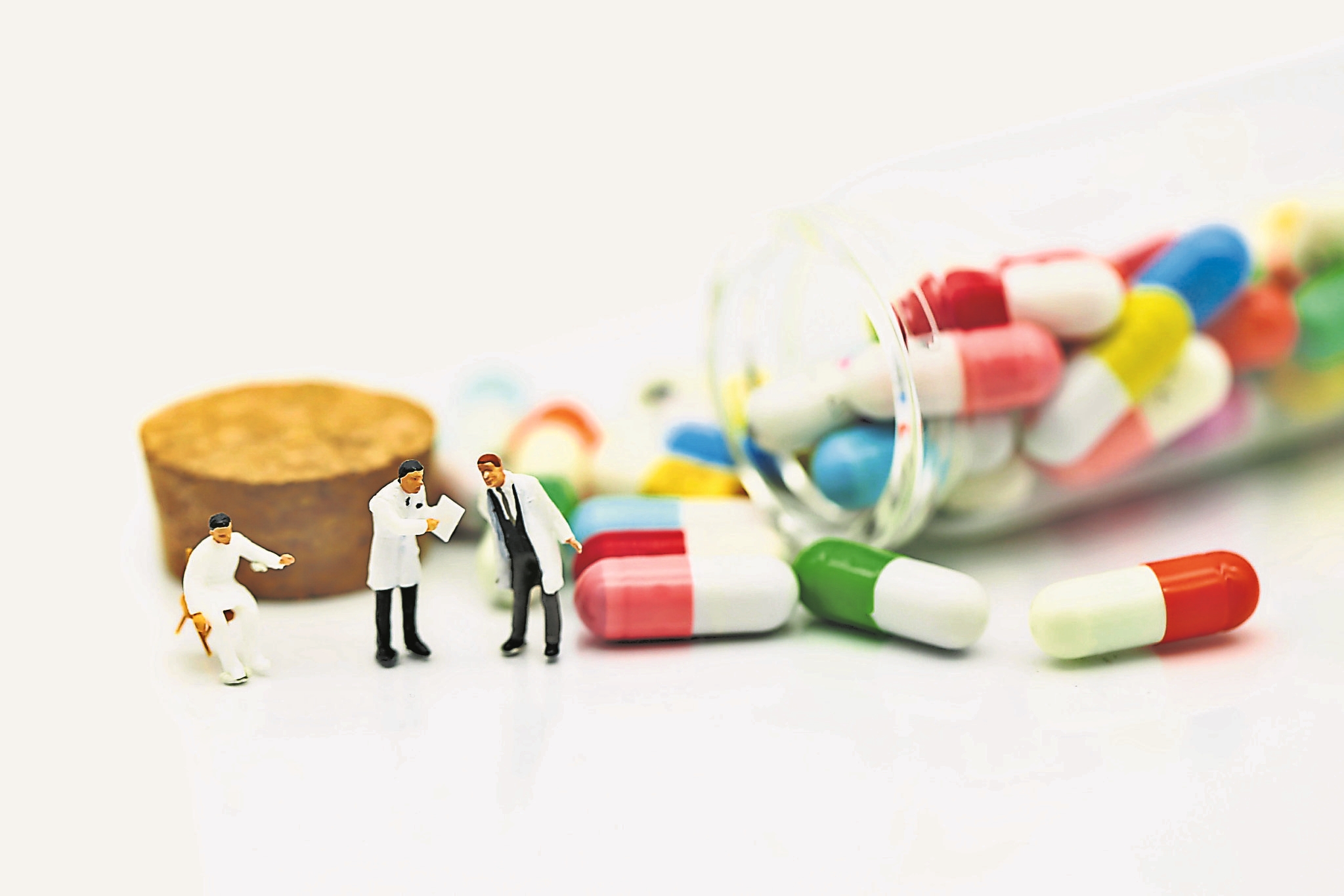[Special Topic on Testosterone Deficiency]Midlife Crisis for Men with Obesity, Three Highs, Dementia and Decreased Maleness, Low Testosterone
[ad_1]
Text◇He Jianxing and compiled by◇Liang Yingxiu
(Kuala Lumpur News) When it comes to menopause, many people think that it is only experienced by women. However, in recent years, the term “male menopause” has also been used, which generally refers to male androgen deficiency or testosterone deficiency.
The scientific name in medicine is “late-onset hypogonadism”, which literally means a condition in which men cannot produce enough testosterone (a major androgen). It covers the symptoms of psychological, emotional and sexual hypogonadism, and Multiple organ systems may be affected, ultimately causing serious health harm.
Patients with late-onset hypogonadism (Testosterone deficiency syndrome/Late onset hypogonadism) are generally older men, but in fact it can occur in men of different age groups, including young, middle-aged and older men.
Dr. Zheng Huiyi
Testosterone levels decrease with age
Dr Tay Hui Sian, consultant in geriatric medicine, pointed out that testosterone plays a key role in men’s sexual desire, muscle mass, mental and physical strength. Many times, even if middle-aged men have different symptoms of testosterone deficiency, they still Continuing to ignore the problem of hypogonadism or blaming it on other causes including aging.
From another perspective, it does not seem to be the most accurate to use the term “male menopause” for patients with testosterone deficiency. It must be noted that testosterone deficiency is not an inevitable result of aging, but it is worth noting that testosterone levels It usually decreases with age, especially in older men, who tend to have lower blood testosterone levels.
The onset of testosterone deficiency mostly occurs between the ages of 45 and 60, but according to the data, the older the age, the higher the proportion. For men aged 45 and above, nearly 40% are affected by the decrease in testosterone, and as for those aged 80, The above is as much as 50%.
So why are young men also affected by testosterone deficiency? She explained that it can be discussed from three different levels, namely disease, bad habits and drug use.
Diseases include obesity, liver disease, kidney disease, diabetes, hypertension, hyperlipidemia, mental illness and AIDS; it must be emphasized that the three highs are now trending among younger people, and this is related to the bad habits of young people, including poor diet, Smoking, alcoholism and lack of exercise; finally, drugs such as abuse of painkillers.
What are the symptoms when a man suffers from testosterone deficiency? Zheng Huizhen said that he would experience decreased sexual desire, difficulty in obtaining and maintaining an erection, ineffective exercise programs, increased body fat and muscle loss, loss of bone density, easy depression, irritability, anxiety, depression, feeling irritable and restless at work. Poor performance, poor memory, inability to concentrate, fatigue, lack of endurance and physical strength, frequent insomnia or drowsiness, loss of appetite, constipation, skin atrophy and back pain, etc.
Testicles shrink and breasts enlarge
As for physical signs, there will be a decrease in muscle mass throughout the body and more subcutaneous fat than before, making the body appear fatter, especially in the abdomen. Next, the hair will begin to turn white and sparse, and the teeth and body hair will fall off or grow. As it slows down, the testicles will shrink, and some patients will show signs of breast enlargement.
In terms of complications, in addition to physical and emotional changes, testosterone deficiency can lead to the onset or exacerbation of various diseases. When a man has low testosterone levels, he suffers from cardiovascular disease, cancer, high blood pressure, diabetes, high cholesterol, and bone loss. There is a greater risk of porosis, anemia and dementia.
In short, when a man, especially an elderly man, suffers from testosterone deficiency, different health problems will occur in the body, and it may even cause more serious health harm. Its existence must not be ignored.
What are the diagnosis and treatment options for testosterone deficiency? In many cases, to diagnose whether a patient has testosterone deficiency, one must start from the clinical manifestations and symptoms, and then check whether the testosterone level has become low. If the patient’s symptoms only improve during treatment, it means that the patient needs testosterone supplementation, that is, the patient has developed testosterone deficiency syndrome.
The goal of testosterone therapy is to improve the patient’s symptoms and normalize his or her testosterone levels, while testosterone supplementation therapy is to increase the body’s testosterone levels through regular use of testosterone supplements.
Gel preparations have fewer side effects
What are the medically proven and legally available testosterone supplement treatments in Malaysia? Zheng Huizhen revealed that there are at least two methods so far, including testosterone gel preparation (testosterone gel) and injection method. The former can apply the gel on the skin of the upper arms, shoulders, inner thighs or abdomen, and absorb the testosterone through the skin. into the body, while the latter is administered via intramuscular injection every few weeks. Depending on the frequency of injections, symptoms may fluctuate between injections.
In contrast, gel preparations have fewer side effects and have been approved by the U.S. Food and Drug Administration (FDA). On the contrary, some testosterone injections have not been approved by the FDA because they may cause other side effects such as pulmonary microembolism. of approval.
Do not shower or shower within one hour after using the gel preparation. The purpose is to ensure that the testosterone supplement can be fully absorbed, and it must be used every day to make the testosterone level more stable, similar to the physiological blood level produced by the testicle pill.
In addition, according to the recommendations of the International Guidelines for Hypogonadism, since some side effects may occur during testosterone therapy, especially an increase in hematocrit, testosterone therapy must be stopped immediately at this time, and the use of gel preparations can be the first choice for patients’ initial treatment.


Testosterone supplementation therapy
Improve emotional function
So what are the benefits of testosterone supplementation therapy for patients? First, body composition can be improved by increasing muscle and reducing fat mass, including total body fat and visceral fat content.
Secondly, it can improve insulin sensitivity, thereby improving metabolic syndrome and reducing the risk of type 2 diabetes.
Finally, it can also improve the patient’s sexual function and mood, including symptoms of depression, and improve the patient’s energy and quality of life, including an increase in bone density..
Zheng Huizhen pointed out that in terms of disease conditions, testosterone supplementation can improve anemia and reduce all-cause mortality and cardiovascular mortality.
What should you pay attention to when using testosterone supplement therapy? If patients have prostate cancer, sleep apnea syndrome, or polycythemia, they are not suitable for testosterone supplementation treatment.
Check PSA levels before treatment
In addition, patients must clearly understand that the use of testosterone supplementation is a lifelong treatment, and the use of testosterone supplements will cause the body’s natural production of testosterone to decrease. Therefore, patients must have a prostate-specific antigen (PSA) level before treatment. detection.
During the course of treatment, doctors will from time to time observe what signs and symptoms the patient will experience after using testosterone supplements, and different changes will occur within 3 to 6 months after treatment. Doctors will also regularly check the patient’s hematocrit (Haemoglobin/Haematocrit) level. This type of blood test will help check whether the patient’s blood has thickened, especially with some injections of testosterone, hemoglobin and blood cells. It is easier to experience abnormal increases.
Not an inevitable phenomenon of aging
According to some early studies, the use of testosterone supplements may promote prostate cancer, although there is no evidence of this in the latest research, but patients are advised to have their PSA levels checked regularly.
As a consultant in geriatric medicine, her advice to patients is that if symptoms of testosterone deficiency occur in old age, please do not ignore its existence. Testosterone deficiency is not an inevitable phenomenon of aging. It is recommended to seek professional advice from a doctor as soon as possible. Get the right treatment to improve your health and quality of life.


Menopausal symptoms are more severe in women than in men
Question 1: How old is the average male menopause?
Answer 1: Between the ages of 45 and 60, testosterone deficiency or late onset hypogonadism causes men to enter menopause. However, men do not necessarily need to enter menopause like women, so some men do not need it. Facing the troubles of menopause.
Testosterone deficiency is not a disease of aging, but it usually decreases with age, especially in older men, who tend to have lower blood testosterone levels.
As long as testosterone deficiency is diagnosed early, the right medicine can indeed be prescribed to improve the quality of life.
Both men and women have similar menopausal symptoms. But the sexes may experience menopause differently. For example, men will develop symptoms gradually over many years, while women will develop symptoms more quickly, perhaps a year. As a result, women experience more severe menopausal symptoms than men.
Supplementing testosterone can better control three highs
Question 2: My father is 80 years old this year. Does he still need to improve his testosterone deficiency? At what age is the ideal age to start testing and repeat testing for testosterone?
Answer 2: Required. Supplementing testosterone can help your father better control the three highs (if any), be in a good mental state, have more physical strength, not get tired easily, increase bone density, improve immune function, reduce cardiovascular disease and improve the quality of life. It is not about age. Once you get older, you don’t need treatment.
There is no rule stating at what age you need to take a testosterone test, but as long as you are easily tired, often in low spirits, unable to do anything energetic, have a weak mind, prone to depression, anxiety, depression, poor appetite, slow movements, sexual function decline, memory loss or poor sleep quality, especially if you are obese or have other risks of testosterone deficiency (such as over 45 years old, suffering from three high blood pressure, liver disease, kidney disease, abuse of painkillers and poor daily life and diet), then you You need to doubt yourself whether you are suffering from testosterone deficiency.
Before receiving treatment, patients need to have testosterone and prostate-specific antigen (PSA) tests. Once the patient receives treatment, he or she needs to be reexamined one month after treatment to detect the effect of the treatment. After that, he needs to do PSA testing, hematocrit (haematocrit) and hemoglobin (haemoglobin) screening 3 months later. Testosterone may cause an increase in hematocrit and hemoglobin.
If all indicators are normal, various screenings need to be done every 12 months. Testosterone levels should be tested 3 months and 1.5 to 2 years after treatment.
Symptoms return after discontinuing testosterone supplementation
Question 3: Is testosterone supplementation permanent? It is said that the body will become dependent on testosterone supplements. Once it is no longer supplemented, the body will stop secreting testosterone and may even rebound, making it worse than before. Is this true?
Answer 3: This is permanent, but you will not return to a worse condition than before after you stop receiving treatment. Testosterone deficiency means that the patient’s body can no longer secrete enough testosterone, so the patient needs to supplement. Once the testosterone returns to normal levels, the symptoms will naturally improve. However, as long as the supplement is stopped, the testosterone level will drop as before and the symptoms will relapse.
Congenital hypertestosterone caused by CAH
Question 4: Since there is low testosterone, is there congenital high testosterone? What will happen to your body?
Answer 4: Yes. Congenital Adrenal Hyperplasia (CAH) causes congenital excess testosterone. Classic CAH is usually discovered during newborn screening at birth, or when the gender of the external genitalia of a baby girl is unclear. Atypical CAH is milder and more common, but may not become apparent until late childhood or early adulthood. Symptoms include the premature appearance of pubic hair, rapid childhood growth, advanced bone age and predicted short final height, precocious puberty, androgenic alopecia, excessive acne, obesity, poor sexual function, and possible “aggressive” personality traits “.
Too much testosterone can lead to violence
Question 5: Supplementing testosterone during fitness will have the effect of getting twice the result with half the effort. Is this correct? What are the side effects of taking too much testosterone supplement?
Answer 5: Most people are not allowed to supplement testosterone without authorization. Only patients with testosterone deficiency can receive testosterone supplementation. If testosterone is too high, there will be problems such as violent tendencies, emotional instability, hypersexuality, and increased red blood cells. Our body secretes testosterone. If we supplement it, it will send a message to the brain: the body has too much testosterone. Over time, the body will reduce the level of testosterone secretion, eventually leading to the need for long-term testosterone supplementation.
Although testosterone can make muscles grow, it is not originally intended for fitness. If you supplement too much testosterone without authorization, you may suffer from negative effects such as sarcopenia and loss of muscle mass once you stop supplementing.
Exercise and diet can help boost testosterone
Question 6: What kind of exercise is best for boosting testosterone? What foods can increase testosterone?
Answer 6: Any exercise is possible, especially strength training including squats, weightlifting and aerobic exercise including jogging, brisk walking, swimming, Tai Chi, fitness dance, etc. Combining each other will have better results. 5 times a week, 30 minutes or more each time. It is important that you evaluate your abilities and your favorite sports.
Elderly people with knee pain need to exercise within their means and follow the advice of physical therapists when choosing sports. In terms of diet, you can eat cabbage, eggs, kelp, oysters, shrimp, soybeans, garlic, mushrooms, tomatoes, pumpkin, milk, avocado, red meat, and protein foods.
Testosterone supplementation prevents prostate cancer
Question 7: Will increasing testosterone increase the risk of prostate cancer?
Answer 7: The latest research points out that increasing testosterone does not increase the risk of prostate cancer. The reason for this statement is that in the first previous study, it was found that the participants had prostate cancer, but the number of participants in this study was too small to confirm the credibility. On the contrary, some studies have pointed out that low testosterone can cause prostate cancer. Increases the chance of developing prostate cancer, so taking testosterone supplements can prevent prostate cancer.
You need a doctor’s prescription to buy testosterone gel
Question 8: Do you need a doctor’s prescription to purchase testosterone gel? I saw oral testosterone medications online. Which of these oral medications is safer and more effective than gel or injectable medications?
Answer 8: Testosterone gel is sold in ordinary pharmacies and hospitals. It is also sold in some drug stores, but it requires a doctor’s prescription to purchase it. Testosterone oral medication is not yet approved in Malaysia, and although it is available abroad, it can cause serious side effects, such as increased blood pressure and an increased risk of heart attack, stroke and cardiovascular death. Currently, only testosterone gel and injectable drugs are approved by Malaysia.
Currently, there is only one testosterone injection drug approved by the U.S. Food and Drug Administration (FDA), and it can only be injected in low doses, because large-dose injections may cause blood clots or hemoglobin surges in patients; testosterone gel has fewer side effects than injection drugs. , because the gel preparation needs to be used every day, making testosterone levels more stable, similar to the physiological blood levels produced by testicle pills, so the chance of blood clots or hemoglobin surges is lower.
As for the effects of testosterone supplementation, it varies from person to person, with patients’ symptoms improving over a period of weeks to months.
Testosterone gel preparations are a safe and effective way to treat testosterone deficiency. The European Andrology Association (EAA) recommends the use of testosterone gel preparations as the first choice treatment for initiating treatment of testosterone deficiency.
Prostate cancer should not be supplemented with testosterone
Question 9: Who is not suitable for testosterone supplementation?
Answer 9: Patients with obstructive sleep apnea, polycythaemia and prostate cancer.

Answer ◇ Dr. Zheng Huiyi’s transcript ◇ Chen Xiaoquan
[ad_2]
Source link

![[Love Wants Sexual Happiness Series 358]Find the culprit and overcome psychogenic erectile dysfunction. Don’t let pressure affect your sexual happiness.](https://chinathenews.com/wp-content/uploads/2024/04/171111-780x420.jpg)

![[Wanqingyi Care]My health, my rights, customized medical methods in the last stage of life](https://chinathenews.com/wp-content/uploads/2024/04/ZZ1-100-780x420.jpg)
![[Kidney Transplantation Special Topic]The survival rate of transplanted kidneys is high without dialysis treatment three times a week](https://chinathenews.com/wp-content/uploads/2024/04/1311-780x420.jpg)



